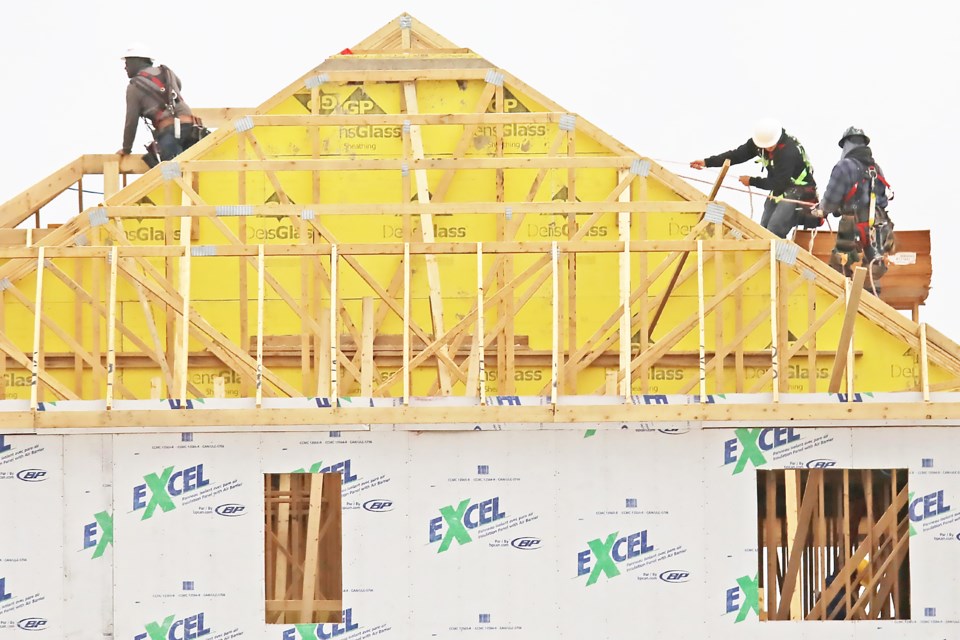The City of Greater Sudbury appears to be on track to exceed the province’s goal of seeing 3,800 new homes built in the municipality by 2031.
During the previous 10-year period from 2012 to 2022, the city issued permits to create 4,076 new homes in Greater Sudbury, averaging just over 400 per year, according to a new report by city senior planner Melissa Riou.
Since 2020, Riou reports that the city has seen an increase in new home creation, with an average of 450 permits for new residential units issued per year during the last three years.
According to the city’s latest count, updated regularly, they’ve issued building permits for 774 residential units since January 2022, which is approximately 20 per cent of the provincial target.
Riou’s report also clarifies that the city’s recent population projections by Hemson Consulting indicate the province’s 3,800-unit goal might be inadequate, and estimates a need for 4,180 new households by 2031.
As a recent Housing Supply and Demand Analysis report by N. Barry Lyon Consultants Ltd. clarified, it’s not just housing units Greater Sudbury needs, but affordable units in particular.
The city has a current deficit of approximately 655 geared-to-income rental units and at least 301 low-end market rental units. Meanwhile, developers’ focus on upper-end homebuyers has increased demand for older stock, driving up costs and making homeownership less affordable.
Similar to a recent report by City of Thunder Bay staff, Riou’s report also clarifies the potential implications of the so-called “strong mayor” powers the province has afforded to various heads of council, including Greater Sudbury Mayor Paul Lefebvre.
These powers are intended to help municipalities meet their housing targets. As Riou’s report notes, these powers could include:
- Choosing to appoint the municipality’s chief administrative officer
- Hiring certain municipal department heads, and establishing and reorganizing departments
- Creating committees of council, assigning their functions and appointing the chairs and vice-chairs of committees of council
- Proposing the municipal budget, which would be subject to council amendments and a separate head of council veto and council override process
- Vetoing certain bylaws if the head of council is of the opinion that all or part of the bylaw could potentially interfere with a provincial priority
- Bringing forward matters for council consideration if the head of council is of the opinion that considering the matter could potentially advance a provincial priority
The province has clarified that city council has the ability to override mayor vetoes with a two-thirds vote, including the mayor as a voting party.
Shortly after the province announced that he would be afforded these powers, Lefebvre told Sudbury.com that he had no intention of using them. His intention is to work collaboratively with his colleagues on city council to achieve the province’s housing goals for the municipality.
The province has pledged $1.2 billion toward incentivizing municipalities to achieve their housing targets, with Greater Sudbury slated to receive more than $1 million per year over three years for meeting annual targets, with actual amounts based on performance.
Meanwhile, the city is also working on a Housing Supply Strategy, for which public consultations took place earlier this year. A draft is set to be released in December, prompting another round of public consultations into the new year and a final approved strategy by the end of 2024.
Tyler Clarke covers city hall and political affairs for Sudbury.com.




